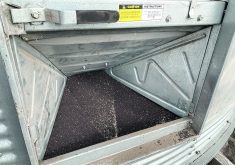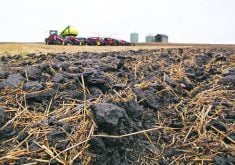Agricultural Producers Association of Saskatchewan members worry about organization’s future due to static resources
REGINA — The new president of the Agricultural Producers Association of Saskatchewan is promising more collaboration with other organizations to get things done for farmers.
Bill Prybylski said all agricultural groups are working toward similar goals, and there can be more opportunities to work together.
However, some delegates at the recent annual meeting say the organization should focus on its own growth, perhaps by changing its funding structure.
Read Also

Saskatchewan puts crown land auction on hold
Auctions of Saskatchewan crown lease land are once again on hold.
During a bear pit-style discussion with the outgoing board, a delegate questioned whether the organization would exist in 10 years if it didn’t get its act together and find more money.
“We are working with basically the same cents and dollars that we had when we started,” said Jean Harrington.
“We’re doing three times as much.”
She said she felt renewal and energy in the room but wanted assurance that the executive was thinking about it.
“I can assure you that is a priority,” said Prybylski.
“It certainly is for me. I recognize the importance of growth for the short term, and it’s not just the financial aspect of it.”
Currently, 134 rural municipalities are APAS members. The number is basically static, the meeting heard, with a few joining each year and a few dropping off.
Prybylski said that means the organization represents about 16,000 producers.
Some said the elephant in the room is that many believe they don’t need to join APAS because the Saskatchewan Association of Rural Municipalities speaks for them.
One delegate said APAS should prepare itself for rural municipalities that are no longer dominated by agriculture but by rural residential areas or resort property owners. Many organized hamlets are also reverting to RM control.
“What does the future of APAS look like if there’s RM amalgamation?” asked outgoing president Ian Boxall.
However, Harrington said what she’s really concerned about is alternative funding models that could bring in members even if their RMs don’t join.
Membership in the Ontario Federation of Agriculture, for example, is mandatory in order to access that province’s fuel tax exemption.
Boxall said he thinks voluntary is better.
“I’ll take the 134 (RMs) that are here, that have a passion for the organization, over 296 RMs and having 150 who don’t want to be here,” he said.
Former vice-president Bev Pirio said many RMs just don’t want to pay the money.
In an interview, Prybylski said there is a recruitment plan to try to get others involved.
“Every RM that does pull out, or that doesn’t join in the first place, usually has some reason, whether that be they’re buying a new grader so they need to adjust their budget and the first and easiest thing to cut is an APAS membership,” he said.
It’s been hard to put a dollar value on the benefits of an APAS membership, he added, but there is no benefit if no one is speaking for farmers.
APAS and SARM have been working together more closely, particularly in the last six months, and have identified issues on which they should collaborate. Prybylski also said that strategy will be used with others such as the crop commissions and cattle groups.
Joining Prybylski on the executive committee are vice-presidents Jeremy Welter from District 6 and Chris Procyk from District 1.
The new board also includes Steve Donald, District 1, Trewett Chaplin and Jim Bateman, District 2; Don Connick and Kevin Gilbert, District 3, Brett Spray, District 4, Scott Hermus and Ryan Scragg, District 5, and Devon Walker, District 6.
















